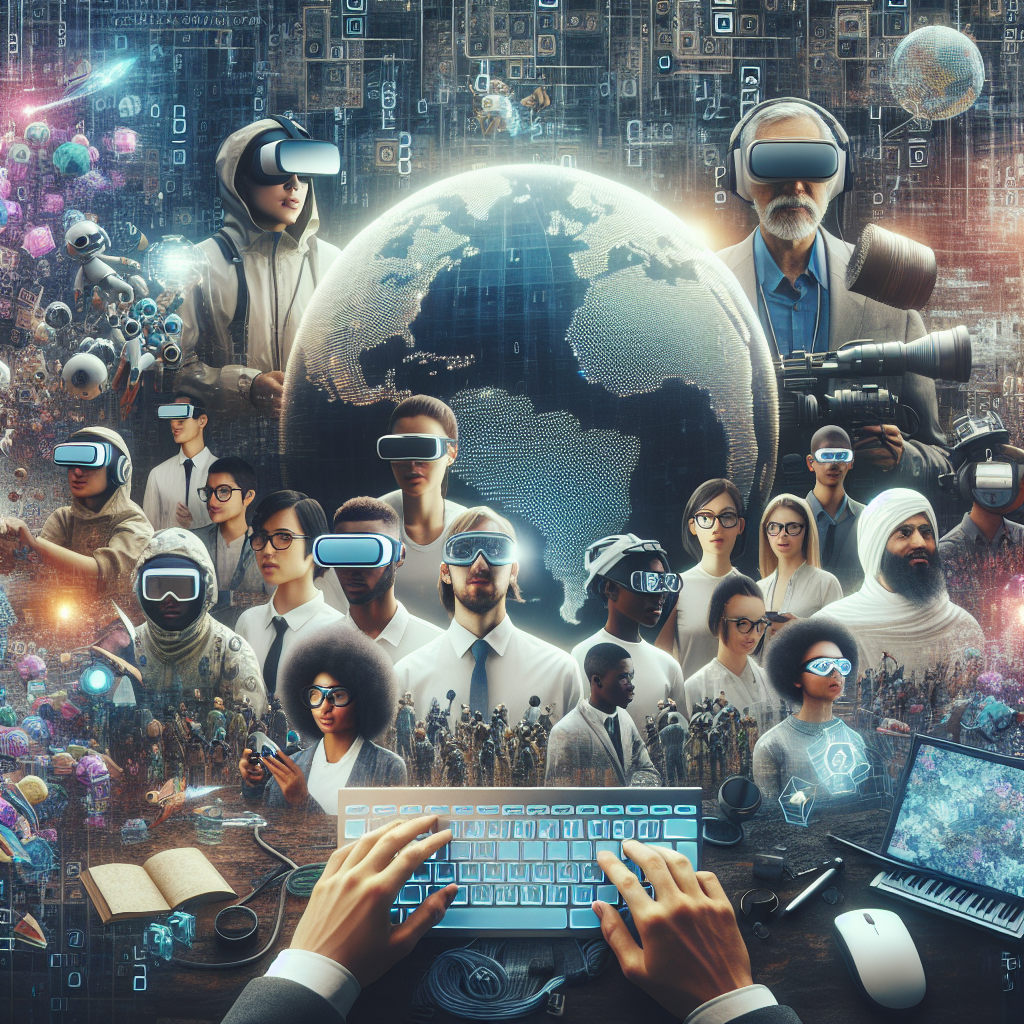Evolving Technologies: How Game Engines Are Shaping Development in 2025
The landscape of technology is in a constant state of flux, with innovations cascading through various industries. Among the most significant catalysts for this change are game engines, which have transcended their original purpose of powering video games to become multifaceted tools that shape development across numerous domains. As we step into 2025, the impact of game engines can be seen across fields such as entertainment, architecture, education, virtual reality (VR), and artificial intelligence (AI), fundamentally transforming how developers create and interact with digital content.
The Rise of General-Purpose Game Engines
In the early 2020s, engines like Unity and Unreal Engine began to gain traction beyond gaming circles. By 2025, these platforms have evolved into general-purpose development environments. Their robust capabilities, ranging from real-time rendering to physics simulation, have attracted developers across sectors. From urban planning simulations to corporate training programs, game engines now serve as the backbone of diverse applications.
The versatility of these engines enables teams to prototype ideas rapidly, making it easier to visualize complex concepts without the need for extensive coding knowledge. This democratization of development is fostering a culture of innovation, allowing individuals from various backgrounds to participate in the creation of digital experiences.
Cross-Industry Applications
Architectural Visualization and Design
One of the most noteworthy evolutions in 2025 is the adoption of game engines in architecture and real estate. Historically, architects relied on static models to present their designs, but now immersive 3D experiences powered by game engines allow clients to walk through buildings before they are constructed. This shift has revolutionized how designers communicate their visions, making it easier for clients to understand spatial relationships and make informed decisions.
Furthermore, real-time collaborative features incorporated into these engines enable remote teams to work together seamlessly, enhancing international design collaborations. Tools like photorealistic rendering and dynamic environment simulations introduce a level of realism that was previously unattainable.
Education and Training
Education has also benefited immensely from game engines. By 2025, educational institutions are increasingly employing immersive simulations to enhance learning outcomes. Game engines allow for the creation of interactive scenarios that mimic real-world challenges, providing students with experiential learning opportunities that textbooks cannot replicate.
In vocational training, industries such as healthcare and aviation leverage game engines to develop simulation environments where professionals can practice their skills without risks. For instance, medical students can perform virtual surgeries, while pilots can navigate realistic flight simulations, both of which significantly reduce the cost and danger associated with traditional training methods.
The Impact of Virtual and Augmented Reality
Virtual Reality (VR) and Augmented Reality (AR) platforms have become mainstream by 2025, largely thanks to advancements in game engine capabilities. With the integration of VR and AR technologies into engines like Unity and Unreal, developers are now capable of creating highly immersive experiences that blend the physical and digital worlds.
In retail, consumers can use AR applications powered by game engines to visualize products in their homes before making a purchase. Similarly, VR experiences allow users to explore virtual environments, interact with products, and even attend virtual events—all from the comfort of their homes. The flexibility of game engines facilitates rapid development and iteration, allowing businesses to respond quickly to changing consumer preferences and market conditions.
AI-Powered Development
Artificial Intelligence is another area where game engines are making a significant impact. By 2025, many engines have incorporated AI frameworks that enable smarter, more adaptive gameplay experiences. This has extended beyond traditional gaming into other domains, allowing developers to leverage AI for procedural generation in architecture or creating intelligent training simulations in healthcare.
Moreover, user-generated content has become a defining feature of many platforms, enabled by AI tools. Game engines now feature advanced algorithms that can assist in content creation, providing suggestions or automatically generating assets based on user input. This fusion of AI and game engines is streamlining workflows and enhancing creative possibilities for developers.
Community-Driven Development
As game engines continue to evolve, their communities have grown into vibrant ecosystems. Development support, forums, and an abundance of online resources contribute to a culture of collaboration and shared learning. By 2025, many engines promote open-source methodologies, enabling developers to share their tools and techniques effectively, fostering innovation.
The rise of modular design and asset marketplaces has also empowered developers to build off existing creations rather than starting from scratch. This collective intelligence enables rapid prototyping, iterative testing, and the sharing of best practices, significantly accelerating the development cycle.
Conclusion
As we traverse through 2025, game engines have emerged as powerful tools that reshape various industries far beyond gaming. Their versatility, combined with the integration of emerging technologies like AI, VR, and AR, has transformed how we develop, visualize, and interact with digital content. The democratization of development and collaboration fostered by these platforms inspires a new generation of creators and innovators, paving the way for exciting possibilities in our tech-driven future. The ongoing evolution of game engines will undoubtedly continue to make a profound impact on multiple sectors, signifying an exciting era of interconnected digital experiences.




